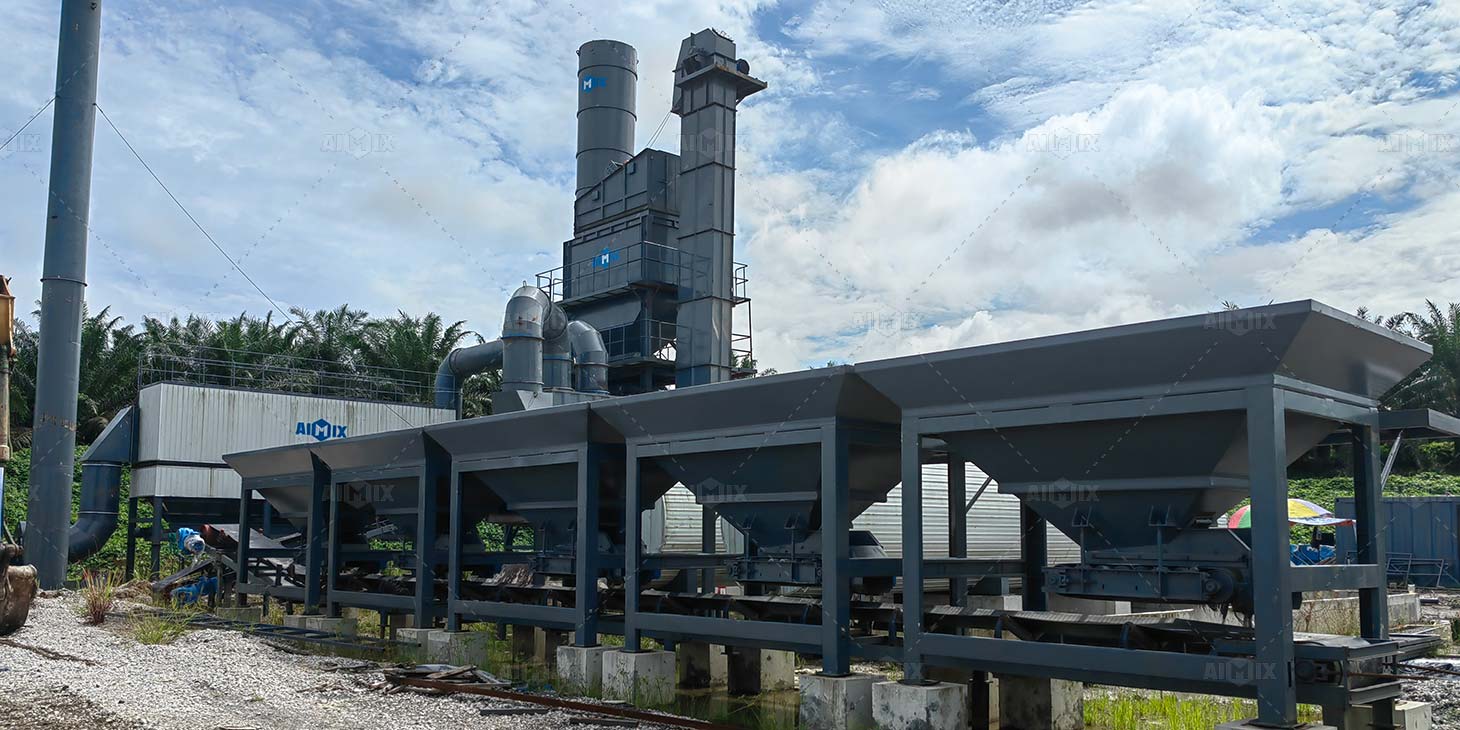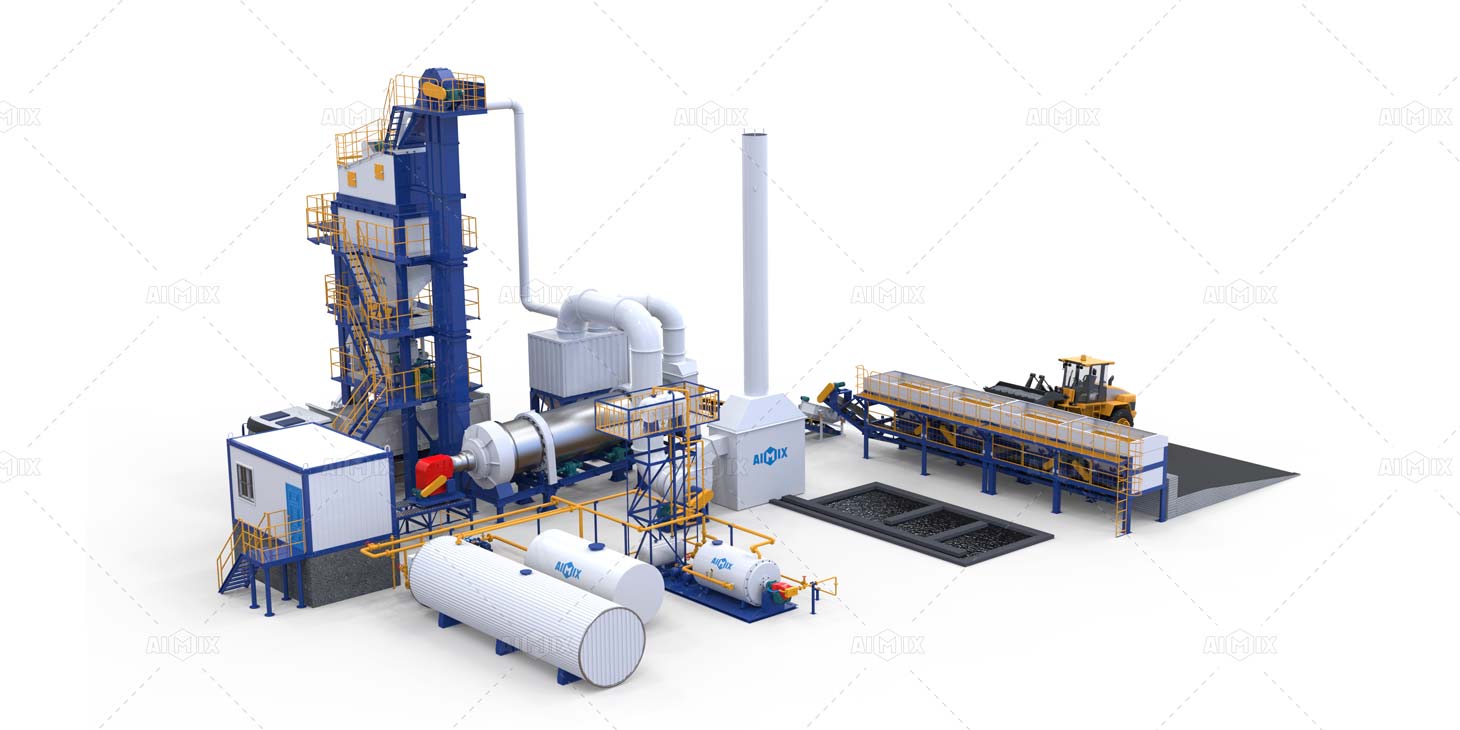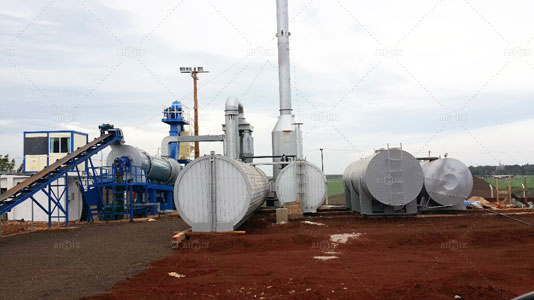An asphalt mixer plant, also known as an asphalt mixing plant or a hot mix plant, plays a crucial role in construction projects, particularly in road and pavement construction. Its importance lies in its ability to efficiently and consistently produce asphalt mixtures, which are essential materials for building high-quality and durable road surfaces. Here are some key reasons why an asphalt mixer plant is important in construction projects:
High-Quality Asphalt Production
An asphalt mixer plant ensures the production of consistent and high-quality asphalt mixtures. It allows for precise control of raw materials, including aggregates, binders, and additives, resulting in asphalt mixes that meet specific performance requirements and project specifications.

Durability and Longevity
Well-constructed roads and pavements are essential for safe and efficient transportation networks. The asphalt produced by the mixer plant contributes to the durability and longevity of road surfaces, withstanding heavy traffic loads, weather conditions, and environmental factors.
Customization
Asphalt mixer plants offer the flexibility to customize asphalt mix designs to suit different project requirements. Engineers can adjust the composition of the asphalt mixture to achieve specific characteristics such as strength, flexibility, skid resistance, and noise reduction.

Cost Efficiency
Efficient asphalt production leads to cost savings over the life of a road or pavement. Properly mixed and placed asphalt reduces the need for frequent repairs and maintenance, minimizing long-term expenses.
Speed of Construction
Asphalt mixer plants facilitate faster construction times. The on-site production of asphalt allows construction crews to have a steady and immediate supply of material, reducing delays in project completion.
Environmental Considerations
Modern asphalt mixer plants incorporate technologies that minimize emissions and energy consumption. Many asphalt batch plants for sale use recycled asphalt pavement (RAP) and reclaimed asphalt shingles (RAS), contributing to sustainability and reduced waste.
Consistency in Performance
Consistency in asphalt quality and performance is vital for road safety. An asphalt mixer plant ensures uniformity in mixtures, preventing issues such as uneven surfaces, rutting, and cracking.
Infrastructure Development
Reliable and well-maintained roads are essential for economic growth and development. Asphalt mixer plants play a significant role in supporting infrastructure projects that connect regions, cities, and industries.
Reduced Transportation Costs
The ability to produce asphalt on-site reduces transportation costs associated with hauling pre-mixed asphalt from off-site plants to the construction site.
Innovation and Research
Asphalt technology continues to evolve, with ongoing research and development efforts focused on improving mix designs, binder materials, and construction techniques. Asphalt mixer plants are hubs for innovation, allowing for the implementation of new technologies and best practices.
Adaptability to Varied Projects
Asphalt mixer plants are versatile and can cater to a wide range of construction projects, from small repairs and resurfacing to large-scale highway construction. Their ability to produce different types of asphalt mixes makes them suitable for various applications.

Quality Control and Testing
Asphalt mixer plants often come equipped with quality control and testing mechanisms. This allows engineers and technicians to monitor the asphalt’s properties during production and make adjustments as needed to ensure compliance with project specifications.
Reduced Dependency on External Suppliers
Having an on-site asphalt mixer plant reduces dependency on asphalt batching plant suppliers for ready-mix asphalt. This can mitigate delays caused by logistical issues and supply chain disruptions.
Local Job Creation
Operating an asphalt mixer plant creates local job opportunities, ranging from plant operators and technicians to maintenance staff. This contributes to the economic development of the region where the construction project is taking place.
Minimized Construction Footprint
On-site asphalt production reduces the need for large stockpiles of pre-mixed asphalt materials, minimizing the construction footprint and optimizing space usage at the project site.
Temperature Control
Asphalt mixer plants allow for precise temperature control during the production process. This control is crucial to achieving the correct viscosity of the asphalt binder, ensuring proper compaction and adhesion during construction.
Emergency Repairs
Asphalt mixer plants provide the capability to quickly produce hot mix asphalt for emergency repairs, such as fixing potholes or addressing pavement failures, enhancing safety for road users. You can learn more about hot mix asphalt plant here: https://aimixgroup.com/hot-mix-asphalt-plant-sale/.
Contribution to Pavement Technology
Research and development in pavement technology benefit from the data and insights gained through the operation of asphalt mixer plants. This contributes to the advancement of road engineering practices and materials.
Support for Local Industries
The availability of an asphalt mixer plant can stimulate local industries involved in supplying raw materials, such as aggregates, asphalt binders, and additives, boosting the local economy.
Enhanced Project Management
Owning or having access to an asphalt mixer plant provides project managers with greater control over the construction timeline, ensuring timely completion of projects.
In conclusion, an asphalt mixer plant is a vital component of construction projects, especially those involving road and pavement construction. Its role in producing high-quality asphalt mixtures with customization options, durability, and cost efficiency makes it a critical asset for ensuring the long-term success of infrastructure development.
